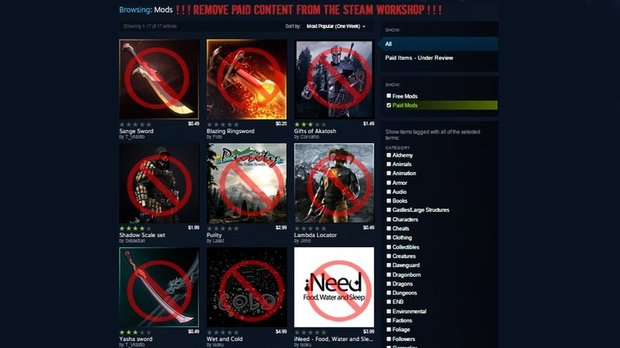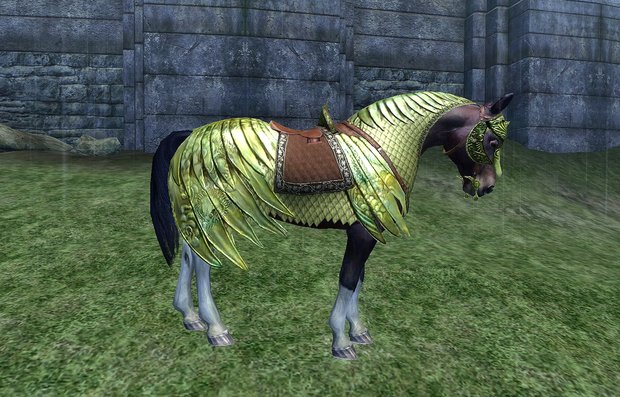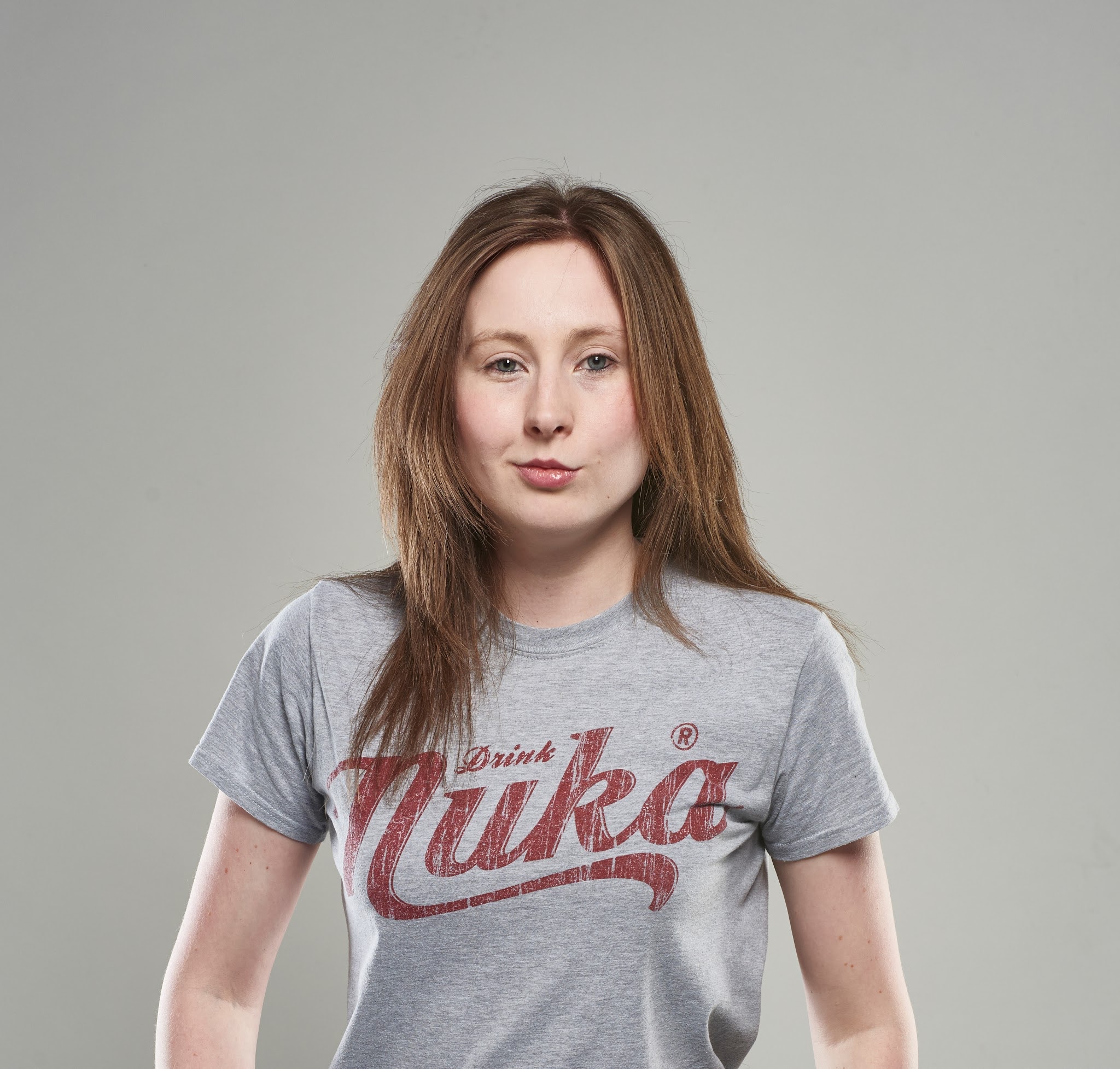We hear you: how paid mods polarised the PC community
It’s not been a great week for Valve. The addition of paid mods to Skyrim's Steam Workshop page led to four days of fury, ending with Valve canning the idea and refunds for anyone who'd bought one. It makes that time they decided to take down super-controversial shooter Hatred look a bit like a picnic with added neo-Nazis. Steam’s Alden Kroll stated in the cancellation announcement “We’ve done this because it’s clear we didn’t understand exactly what we were doing.”
But what exactly were they doing? Adding a pricing structure to mods certainly doesn’t seem like a bad idea on the surface. Mods redefine games, add endless amounts of incredible new content (just see our GTA 5 PC mods for proof) and make Skyrim, especially, a game of limitless - and very pretty - potential. This takes time, hard work and talent. Why shouldn’t modders be paid for their services?
Yet, discussion forums were ablaze with anger, a petition against the move gained over 133,000 signatures and Gabe Newell himself appeared at the weekend to try and quell the fury in a Reddit AMA, stating that this was a way to support the modding community, not destroy it. "Skyrim is a great example of a game that has benefitted enormously from the mods. The option for paid mods is supposed to increase the investment in quality modding, not hurt it," he posted. "About half of Valve came straight out of the mod world. John Cook and Robin Walker made Team Fortress as a Quake mod. Ice frog made DOTA as a Warcraft 3 mod.... All of them were liberated to just do game development once they started getting paid. Working at Waffle House does not help you make a better game."

So why the complaints? “Why this personally matters so much to me is because I think this will change the image of modding,” explained Cyand Wondel, founder of the change.org petition, speaking to GR+ before the cancellation announcement. “I believe that the reason for making mods will change, because what was done out of passion will now change to a way to only make money of it. And I believe that this limits the freedom mod authors and users have. Next to that, the Workshop will be flooded with mods that will only be used for making a quick buck, most of the mods will then become similar to each other.”
It was also clear from the get go that this was a murky area to police; one of the first mods to charge was quickly pulled when it became clear it was using another modders assets without permission. So much free content is already available - from Steam and places like Nexusmods - who could say to whom content really belonged? Messily, Valve also announced that it expected consumers to help police content. Never a good start.

Before the cancellation announcement Bethesda too fully supported the decision for paid content, saying in a blog it rewarded the hard work of the modding community. They even made reference to their own disastrous horse armour mod.
“We believe most mods should be free," said Bethesda's post. "But we also believe our community wants to reward the very best creators, and that they deserve to be rewarded. We believe the best should be paid for their work and treated like the game developers they are...We also don’t think we should tell the developer what to charge. That is their decision, and it’s up to the players to decide if that is a good value. We’ve been down similar paths with our own work, and much of this gives us déjà vu from when we made the first DLC: Horse Armor.”
Weekly digests, tales from the communities you love, and more
It was clear that not everyone in the community was against the idea (and our own Dave Roberts makes a strong argument for paid mods being a good thing). Garry Newman, the creator of Garry’s Mod, was also vocal of his support in a blog post about the new pricing arrangement. “I sold a mod once and everyone was angry that it was happening, until it happened and they got a much better product than they’d have gotten when it was released for free, then they seemed to calm down a bit. It has given me a career for 10 years. It’s bought me two houses, a bunch of cars. It’s created a company that has hired 30+ people.”
It didn’t look like anyone was going to get rich from the Steam Workshop’s new initiative. Only a 25% share actually ended up on the pockets of the mod creators themselves which was another cause for malcontent. Donation based systems on sites such as Nexusmods didn't have anything going to the developer or publisher. Bethesda's anonymous blog post addressed the new set up - 30% going to Valve, 45% to Bethesda and 25% to the modder - as "the current industry standard having been successful in both paid and free games." The publisher stated that these figures were "debatable" but "the best place to start".
"This is not some money grabbing scheme by us," continued the post. "Even this weekend, when Skyrim was free for all, mod sales represented less than 1% of our Steam revenue.... Even now, at 25% and early sales data, we’re looking at some modders making more money than the studio members whose content is being edited." As a concept this was new ground for the publisher. Yet the years of content available on the Nexusmods forums are ripe for the picking in terms of content that could easily be tweaked for resale. With this new set up, money could easily be made from stolen assets.
The community wasn't ready for such a quick switch. Where before, mods were free (with the option to donate if you felt generous), overnight they were bundled up into individually priced packages. For many it cheapened the creativity and fun of mods with a more cash-grabbing micro-transaction approach. This wasn't what it wanted.
And Valve and Bethesda didn't just listen. They responded with the complete cancellation of the new system. Bethesda's updated blog post is a clear statement. It wants to make the community happy. "Even though we had the best intentions, the feedback has been clear – this is not a feature you want. Your support means everything to us, and we hear you." This might look like a world run by the behemoths like Bethesda and Valve but they depend entirely on the support of their customers.
“When we unite we can achieve something," says Wondel of his petition's victory. "This [isn't] only limited to Valve, but to other companies also. If corporate does something that will change the current situation for the negative, we can do something about it. We, as consumers, can unite together and have our voices heard.”
Louise Blain is a journalist and broadcaster specialising in gaming, technology, and entertainment. She is the presenter of BBC Radio 3’s monthly Sound of Gaming show and has a weekly consumer tech slot on BBC Radio Scotland. She can also be found on BBC Radio 4, BBC Five Live, Netflix UK's YouTube Channel, and on The Evolution of Horror podcast. As well as her work on GamesRadar, Louise writes for NME, T3, and TechRadar. When she’s not working, you can probably find her watching horror movies or playing an Assassin’s Creed game and getting distracted by Photo Mode.



